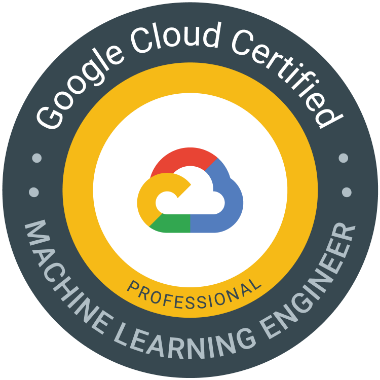Introduction: The Rapid Rise of AI Careers and AI Jobs
The world is constantly changing & evolving, and so are the job markets & opportunities. Let’s be real: Jobs in AI are no longer a futuristic concept—they are becoming more and more mainstream. So, whether you are a fresh graduate or an experienced professional looking for a quick career change, understanding the landscape of AI careers is the first step toward building a future-proof career. However, the influence of AI jobs is continuously shaping the future job markets by automating repetitive tasks, creating new roles, and augmenting human capabilities.
As the demand for AI careers grows, it’s essential to understand the various paths available in this field. Many professionals are transitioning into AI careers from other sectors, highlighting the versatility of skills needed.
With AI, it’s just a transformation, not a replacement.
What Are AI Jobs? Understanding the AI-Related Job Market
AI careers often require a unique blend of technical knowledge and creativity, making them appealing to a diverse range of individuals. Exploring these careers can lead to rewarding opportunities in multiple industries.
AI-related jobs are roles that directly involve the design, development, and application of artificial intelligence & machine learning technologies. However, this encompasses a wide spectrum of positions, ranging from deep technical roles to those that leverage AI tools to enhance existing work. Not only that, careers in artificial intelligence span across nearly every industry, including finance, healthcare, entertainment & manufacturing.
Let’s take this as an example: a doctor might use jobs that use AI to get even more accurate diagnoses from an image analysis tool, while a marketing professional might leverage AI to analyze consumer behavior & customize campaigns.
Those interested in AI careers should consider gaining experience through internships or projects, which can provide valuable insights into real-world applications.
Top Artificial Intelligence Career Paths to Explore in 2025 & Beyond
Furthermore, networking with professionals in the field of AI careers can open doors and provide mentorship opportunities for newcomers.
As the landscape of AI careers continues to evolve, keeping up-to-date with the latest trends and technologies is crucial for success.
The demand for jobs in artificial intelligence is soaring. In the year 2025 & beyond, many key roles stand out as the most promising artificial intelligence career paths.
In summary, pursuing AI careers can be incredibly fulfilling, and the skills developed along the way can be applied to various roles across different sectors.
1. Machine Learning Engineer
Those in AI careers also have the opportunity to contribute to significant advancements in technology that impact society positively.
A machine learning engineer happens to be a highly technical role at the heart of the AI development procedure. A machine learning engineer is responsible for taking the theoretical models created by the data scientists & turning them into scalable, robust & production-ready systems. However, the day-to-day life of a machine learning engineer includes designing & building data pipelines in between, optimizing algorithms for performance, and ensuring that ML models can handle massive amounts of data in real time. This is one of the best AI jobs & a crucial role in building & deploying AI models. The machine learning engineer career path involves designing, building & maintaining ML systems at scale.
2. Data Scientist
The data scientist role often seems like the detective of the data world, a data scientist uses a blend of statistical analysis, programming & domain expertise to unearth valuable insights from complex datasets. A data scientist doesn’t just work with the data; in fact, they shape it. This involves everything from cleaning and preprocessing raw data to building predictive models and using machine learning to uncover hidden patterns. These professionals are the key to extracting insights from any data. They do use AI & ML to identify trends, create predictive models, and inform business strategy.
3. AI/ML Research Scientist
An AI/ML research scientist operates on the bleeding edge of technology. However, a machine learning engineer focuses on applying existing models, while a research scientist is dedicated to inventing new ones. This particular career includes designing & developing novel algorithms, pushing the boundaries of what AI can achieve, and contributing to the global body of knowledge through academic papers & patents. These roles are at the forefront of innovation, focused on creating new AI models & algorithms. This is often a highly specialized path that requires a strong academic background.
4. AI Product Manager
The AI Product Manager is an important hybrid role that acts out as the bridge between technical AI teams & the business’s strategic goals. An AI product manager are not typically involved in the day-to-day coding, but they have enough technical expertise to understand the capabilities and the limitations of the AI. This is a hybrid role that bridges the gap between technical AI teams & business goals. An AI manager defines product requirements and ensures AI solutions solve real-world issues.
5. AI Ethicist
AI is becoming more and more embedded in our society, and the role of the AI ethicist has become one of the most important & fastest-growing career paths. An AI Ethicist mainly focuses on ensuring that the AI systems are developed and used properly. Apart from this, they address the critical societal role of AI as it becomes more integrated into society, the requirement for ethical guidelines & oversight grows. Remember, artificial intelligence is an emerging career path that is focused on ensuring AI systems are fair, transparent & unbiased.
Additionally, many jobs with AI are emerging that combine traditional roles with AI expertise, such as an AI-driven marketing analyst, a legal AI consultant, or a robotics technician. The artificial intelligence job opportunities are expanding far beyond traditional tech companies.
Expanding The AI Horizons in 2025
The Impact of AI is not limited to the traditional tech roles. However, a significant trend for 2025 and beyond is the immediate emergence of jobs that combine expertise in a traditional field with AI proficiency. These new roles leverage AI tools to enhance existing workflows & create new opportunities. For instance:
1. AI-driven Marketing Analyst
Use AI for predictive consumer behavior analysis & hyper-customization.
2. Legal AI Consultant
A legal AI consultant helps law firms & corporate legal departments use AI for document review, contract analysis & legal research.
3. Robotics Technician
Works with the AI-powered robots in manufacturing & logistics, focusing on maintenance, programming & calibration.
4. AI-enabled Medical Diagnostician
Opts for AI to analyze medical images and data to assist doctors in making more accurate & faster diagnoses.
Skills You Require For a Successful Career in Artificial Intelligence
If you want to truly succeed in an AI career, then you need a combination of technical skills & soft skills. Here are some examples:
1. Technical Skills
- Programming Languages: Having proficiency in Python is non-negotiable, as it is the most widely used language in AI. Other useful languages include R, Java, and C++.
- Machine Learning Frameworks: Getting expertise in frameworks such as TensorFlow, PyTorch, and Scikit-learn is essential for building and training models.
- Data Science Fundamentals: A solid understanding of data manipulation, statistical analysis, and data visualization.
- Specialized in AI Domains: Depending on your desired AI career path, you might need to specialize in areas such as natural language processing, computer vision, or robotics.
2. Soft Skills Required
- Problem-solving: The ability to break down complex problems and think critically is paramount.
- Communication: You must be able to explain complex AI concepts to both technical and non-technical audiences.
- Adaptability: The field of AI is constantly evolving, so you can continue learning, and a flexible mindset is key.
- Ethics: Understanding the ethical implications of AI is becoming a mandatory skill for all jobs in AI.
Certifications & Tools That Boost AI Careers
Certifications are an excellent way to validate your skills and stand out for AI job opportunities:
1. Google Professional Machine Learning Engineer
This certification validates your ability to build and deploy ML models on Google Cloud.
Heading Of The CTA

Google Cloud Certified Professional Machine Learning Engineer
Google Cloud certification is just a course away. Train hard, test smarter, and transform data into ML solutions.
Learn More2. Microsoft Certified & Azure AI Engineer Associate
Focuses on building, managing, and deploying AI solutions on Microsoft’s Azure platform.
Heading Of The CTA
_000ym4_000ZM5.webp)
Microsoft Azure Certifications Training
Get your hands on our learning resources, build Azure skills, and become a Microsoft-certified professional.
Learn More3. IBM AI Engineering Professional Certificate
Get a hands-on program that covers a wide range of AI & machine learning skills.
4. TensorFlow Developer Certificate
A certification that demonstrates your proficiency with the TensorFlow framework.
Essential Tools
- AI Development Framework: Libraries such as TensorFlow & PyTorch are fundamental for building models.
- Cloud-Based AI Services: Platforms such as Google AI Studio, Azure AI services, and AWS SageMaker provide powerful tools for building and deploying AI models without managing the underlying infrastructure.
- Data & Collaboration for Career Path: Jupyter Notebooks, GitHub & collaborative platforms are crucial for an AI career path.
What Type of Tools Does AI Pros Use?
Knowing what type of tools an AI process is essential for anyone who is looking forward to making it big in a career in artificial intelligence.
1. Programming Languages & Core Libraries
Coding is an essential part of every AI project. Despite other languages being used, Python still has its grip on the supreme, vast ecosystem of libraries as well as strong community support.
- TensorFlow
- PyTorch
- Scikit-learn
2. Data Manipulation & Analysis Libraries
Before you can train like a model, you would have to prepare your data.
- Pandas
- Numpy
- Matplotlib & Seaborn
3. Development Environment & IDEs
The environment you work in is just as important as the tools that you use. The AI professionals often rely on interactive & collaborative platforms to write & test their code.
- Jupyter Notebooks
- Google Collaboratory
- VS Code
4. Cloud Computing Platforms
For the big AI projects, the local machines simply do not have the power. However, the cloud platforms do provide the scalable infrastructure to train the complex models on the massive datasets.
- Amazon Web Services
- Google Cloud Platform
- Microsoft Azure
5. Collaboration & Version Control
Working in a team & managing changes to your code is fundamental to any professional software development, & AI is no exception.
- GIT
- GitHub
How to Start a Career in Artificial Intelligence?
Now, you might be wondering, “How to start a career in artificial intelligence?” The journey is more accessible than you think. Starting your artificial intelligence career might feel like climbing a mountain, but here’s a simple path designated for you:
1. Build Up Your Base
Start with the basic math, stats & Python programming, and then begin the next step. AI is integrated with mathematics, which solely focuses on linear algebra, calculus, probability & statistics. These types of subjects are important for understanding how machine learning algorithms work.
2. Learn ML Core Ideas
Dive into how machine learning works & its procedure. Understanding the difference between supervised learning, unsupervised learning, and reinforcement learning. Learn more with uCertify courses: Cybersecurity, Python Programming, and Responsive Web Development.
3. Find Your Niches
As soon as you are done with the basics, try to establish your niche and see what interests you more. The field of AI is vast, and it will make you stand out among employers who are seeking a specific skill.
4. Get Hands-on Experience
This is quite important; work on your establishments, join a coding challenge, etc, and try to build a portfolio of yourself showcasing your skills. One can start by building their projects from scratch, and this could be anything from a simple image classifier to a sentiment analyzer for social media posts. The key is to start small & build more complex projects as you learn.
Conclusion: The Future of AI Careers
The future is bright for AI jobs. While some jobs that use AI today may be automated, entirely new roles will emerge. We’ll see roles like AI-driven business strategists, AI ethics consultants, and prompt engineers become commonplace. The key to a successful artificial intelligence career is adaptability and a commitment to lifelong learning. The world of AI is constantly evolving, and so must you.
However, the future of work is not AI replacing humans, but humans working with AI. The jobs in AI are here to stay, and the artificial intelligence career paths are more diverse than ever. Whether you’re interested in the technical side or in applying AI to a different field, there has never been a better time to pursue a career in this exciting industry.
FAQ’s
How do I start my career in AI, even though I am new to it?
If you are a beginner, then start with the basics. Start with basic Python programming & get a handle on basic math statistics. such as statistics. UCertify has ideal programs meticulously designed for beginners to get started with practical skills & foundational knowledge.
Do I need a fancy degree to get a good AI job?
No, not really! An advanced degree is a great way to begin your career in research-based industries; especially jobs like machine learning engineer/data scientist can be landed with a bachelor’s degree if you have robust hands-on skills and the required experience. However, you can still get a good job by earning certifications in AI-based courses and succeed in your career.
What are some of the highest-paying jobs in AI?
The highest-paying jobs in AI include data scientist, deep learning engineer, AI research scientist, & machine learning engineer. However, these careers involve complex technical work & roles.
How important are certifications to land a job in the artificial intelligence field?
Certifications are the best way to begin your career, especially in an advanced field like AI. A certification works like a stamp of approval that showcases your skills to employers.

_000yM9.jpg)




_000VZe.png)
No Comments Yet
Be the first to share your thoughts on this post!